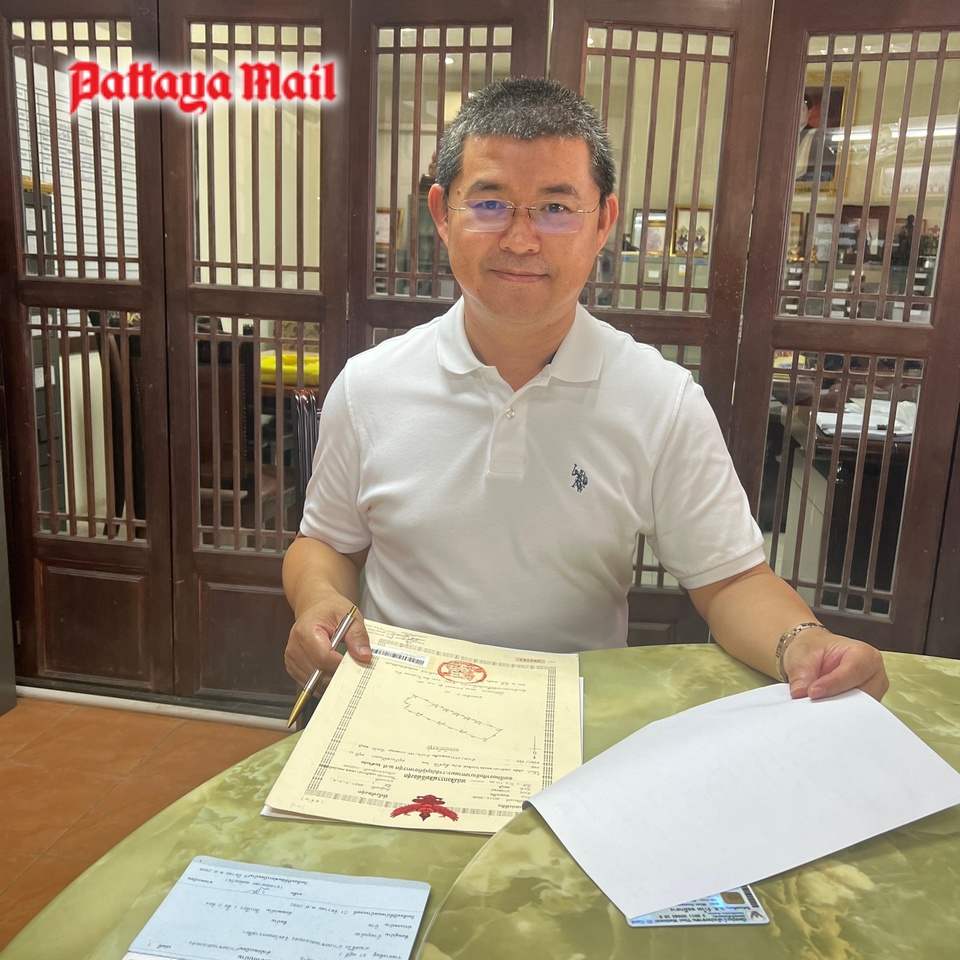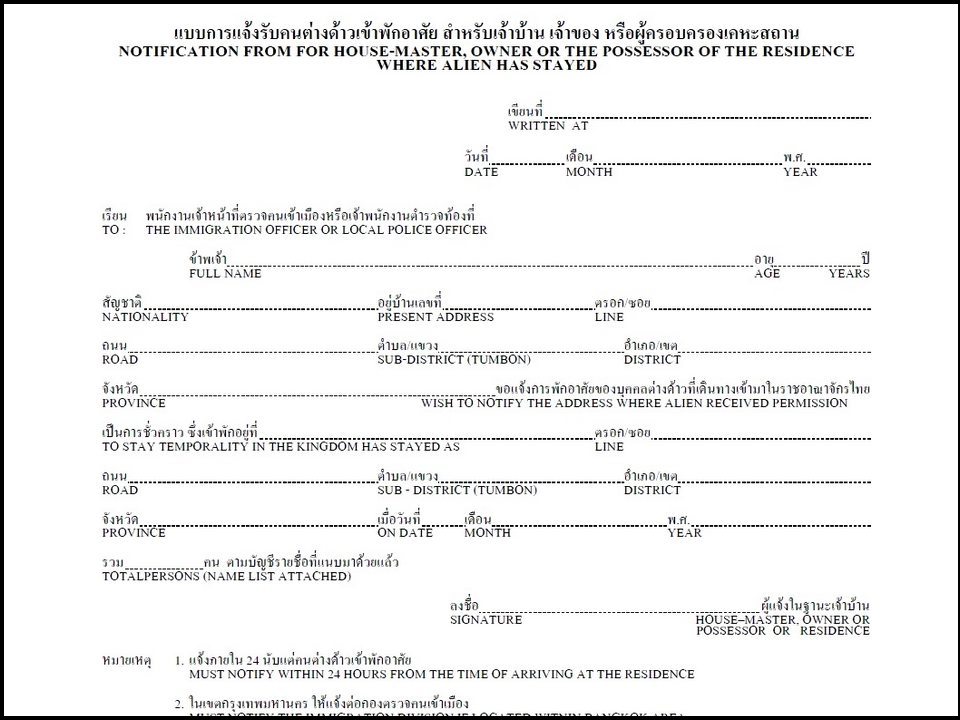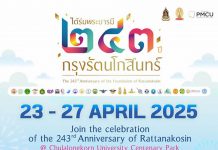
The Thai government has now amended several immigration rules in order to encourage a greater number of foreign tourists and longer-stay visitors. Details of the changes and updates have been provided elsewhere on the Pattaya Mail website. Since 1979, the authorities have required to know the Thai address of international visitors as soon as possible, although the law was only loosely enforced until a few years ago.
So this brings us to the TM30 form which records these details. Most new arrivals need not bother as the responsibility is that of the hotel manager or head of household. Most hotels in fact register their foreign guests online and the newly-arrived may not even be aware. Local immigration will then issue an online receipt which the hotel can then give to the customer if he or she requires it.
The problem arises where the hotel – thankfully a minority these days – defaults and does not notify immigration. The same issue arises in many condominiums and private houses where nobody bothers to do the paperwork on behalf of the new guest. Of course, if a foreigner owns a condominium unit, he or she is personally responsible as “head” of household. But I am often asked, what happens if nobody reports a new arrival?

The central issue is that immigration will ask to see the TM30 receipt for any service in their local office. Tourists or expats will likely find they cannot extend their visa or obtain the immigration certificate to open a bank account or apply/renew their driving licence or (in the case of expats) notify the authorities for the separate 90 days report without that all-important receipt. The need can also extend to hospital treatment as some insurers insist on seeing the receipt to cover medical bills.
Failure to provide the TM30 receipt for any immigration service can lead to a fine, typically 1,600 baht (about US$43) which the visitor must pay and a new form filled in. The accompanying documentation needed is a copy of the ID and current visa pages of the passport, 2 identical head and shoulders colour photos and proof of the accommodation. That can be a confirmation letter from the hotel, a lease, a property deed or a house registration. The website tm30.io/faq goes into detail and indicates how to register online in order to avoid a personal visit to immigration.
Customers often ask what is the point of this bureaucracy? Government spokespeople will say it’s a security measure against foreigners deliberately remaining under the radar. Embassies, on the other hand, sometimes contact the police with crucial messages for their nationals. The data nationally from TM30 forms is used statistically to assess the general location patterns of foreigners within the country. Whether you find these arguments as persuasive is beside the point. It’s a Thai law and one closely monitored by the authorities.








